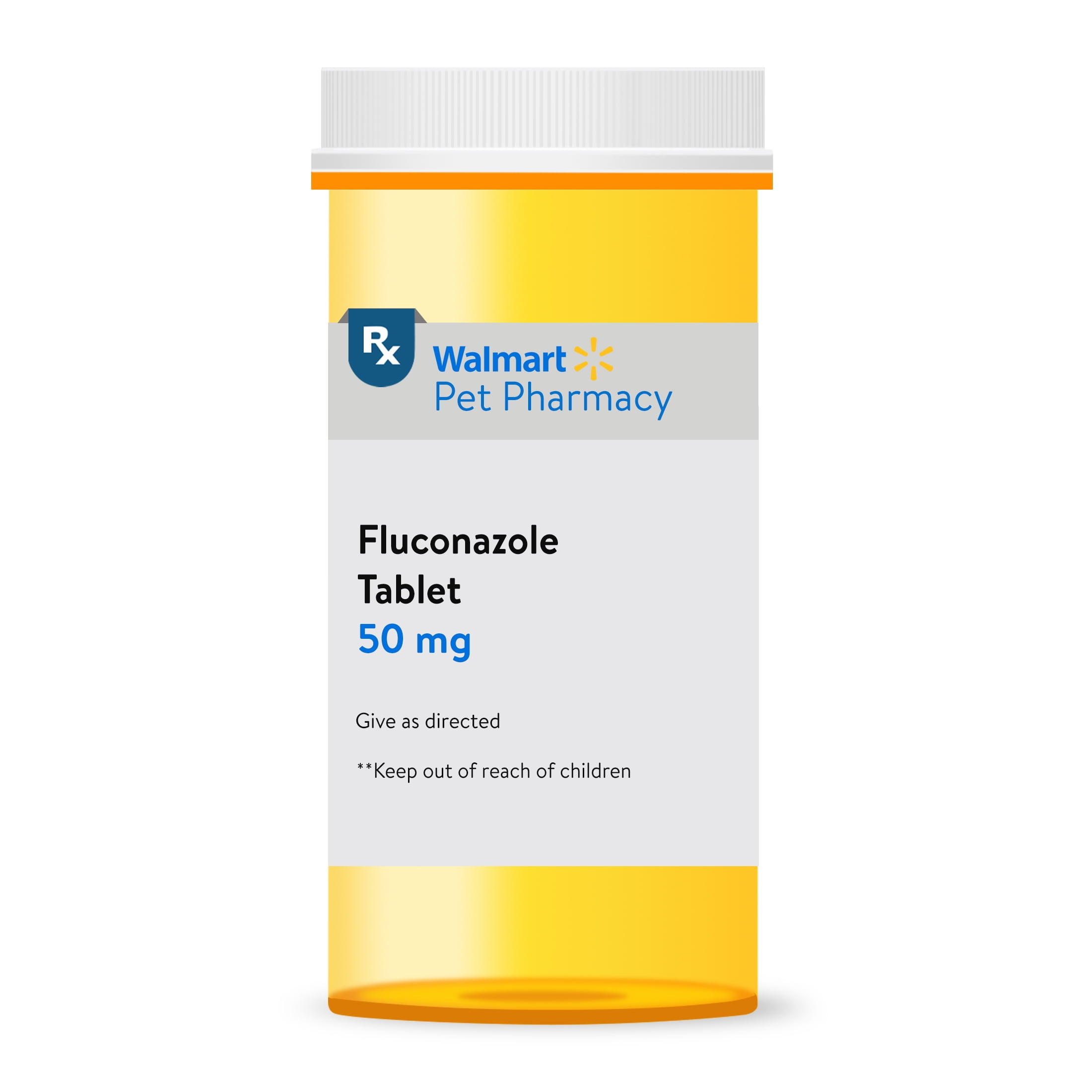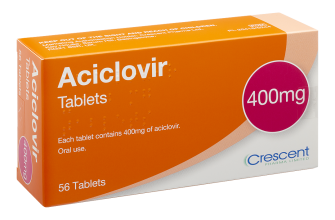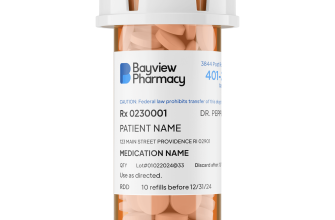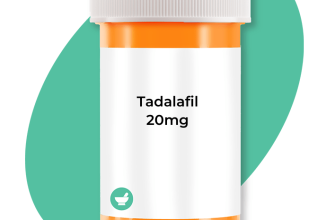If you’re looking to treat fungal infections, fluconazole is a reliable option. This antifungal medication effectively targets various types of fungal infections, including candidiasis and cryptococcal meningitis. You can purchase fluconazole through licensed pharmacies, ensuring you receive a genuine product backed by quality standards.
Before making a purchase, consult with your healthcare provider to confirm that fluconazole is the right choice for your condition. They can offer insights into dosage and potential interactions with other medications you may be taking. Once you have a prescription, choose a reputable pharmacy, either local or online, to ensure safety and authenticity.
When using online pharmacies, verify their legitimacy by checking for proper licensing and customer reviews. Many providers offer the convenience of home delivery, saving you time while ensuring you have the medication you need. Follow your prescription instructions carefully for the best results in treatment.
- Purchase Fluconazole: A Comprehensive Guide
- Considerations Before Purchase
- Post-Purchase Guidance
- Understanding Fluconazole and Its Uses
- Mechanism of Action
- Administration and Dosage
- Where to Buy Fluconazole: Online vs. Local Pharmacies
- Benefits of Online Purchases
- Local Pharmacies: A Trusted Option
- Comparing Prices: Finding the Best Deals on Fluconazole
- Utilizing Online Resources
- Consider Generic Options
- Prescription Requirements for Purchasing Fluconazole
- Who Can Prescribe Fluconazole?
- Key Information for Prescriptions
- Safety Considerations When Buying Fluconazole
- Consult Healthcare Professionals
- Be Aware of Side Effects
- Fluconazole Dosage Information and Recommendations
- Common Side Effects and Precautions of Fluconazole
- What to Do If You Experience Adverse Reactions to Fluconazole
- Identify Symptoms
- Follow Up with Your Healthcare Provider
Purchase Fluconazole: A Comprehensive Guide
Choose a reputable online pharmacy or a local pharmacy that offers fluconazole. Verify that the pharmacy requires a prescription from a healthcare provider. Authentic sources prioritize customer safety and medication quality.
Considerations Before Purchase
- Obtain a Prescription: Ensure a medical professional prescribes fluconazole. Provide details about your medical history and any current medications.
- Compare Prices: Research multiple pharmacies to find competitive pricing. Look for discounts and special offers.
- Read Reviews: Investigate customer experiences with the pharmacy. Look for feedback on delivery times, customer service, and product quality.
- Check for Certifications: Confirm that the pharmacy is certified and follows local regulations to avoid counterfeit medications.
Post-Purchase Guidance
Once you receive fluconazole, read the included instructions carefully. Adhere to the prescribed dosage and schedule. Report any adverse reactions to your healthcare provider immediately, and do not hesitate to ask questions if the information is unclear.
- Follow Dosage Instructions: Maintain a consistent routine to maximize effectiveness.
- Store Properly: Keep fluconazole in a cool, dry place away from direct sunlight.
- Monitor Symptoms: Track your response to the medication and revisit your healthcare provider for follow-ups.
By taking these steps, you ensure a smooth purchasing process and effective treatment experience with fluconazole.
Understanding Fluconazole and Its Uses
Fluconazole is an antifungal medication primarily used to treat various fungal infections, particularly those caused by Candida species. It’s commonly prescribed for conditions such as thrush, vaginal yeast infections, and cryptococcal meningitis.
Mechanism of Action
This medication works by inhibiting the synthesis of ergosterol, a crucial component of fungal cell membranes. By disrupting this process, fluconazole compromises the integrity of the fungal cell, leading to its death. This specific action provides effective treatment against susceptible fungi while causing minimal harm to human cells.
Administration and Dosage
Fluconazole is available in oral and intravenous forms. Dosage varies based on the infection type and patient condition. For uncomplicated vaginal yeast infections, a single dose of 150 mg is often sufficient. In cases of severe infections, higher doses or extended treatment durations may be necessary. Always follow your healthcare provider’s recommendations for proper dosing.
Potential side effects include nausea, headache, and dizziness. Always inform your doctor about any other medications you are taking to avoid interactions, especially with anticoagulants and other antifungals.
For individuals with compromised immune systems, fluconazole provides a vital means of managing infections, particularly in conditions like HIV/AIDS. Regular monitoring by healthcare professionals ensures safety and efficacy during treatment.
Where to Buy Fluconazole: Online vs. Local Pharmacies
For those in need of fluconazole, buying it online offers convenience and often lower prices. Reputable online pharmacies allow for easy comparison of costs and detailed product information. Ensure the website is licensed and check for customer reviews to guarantee safe purchasing.
Benefits of Online Purchases
Online pharmacies frequently provide discounts and promotions that local stores may not match. You can order from the comfort of your home and have the medication delivered discreetly to your door. Many reputable sites also offer consultation services, where licensed pharmacists can address any concerns about the medication.
Local Pharmacies: A Trusted Option
Purchasing fluconazole from local pharmacies allows for immediate access to the medication. You can consult with a pharmacist right away, asking questions about dosage and potential interactions with other medications. Local shops often have systems in place to check for insurance coverage, aiding in cost management.
Whether you choose online or local pharmacies, always prioritize safety and ensure the source is trustworthy. Doing your research will help you make an informed decision while obtaining your medication.
Comparing Prices: Finding the Best Deals on Fluconazole
Begin your search for fluconazole by checking multiple pharmacies. Large chain pharmacies often have competitive prices, but local and independent pharmacies may offer discounts or loyalty programs that can save you money. Don’t hesitate to call ahead and ask for price quotes.
Utilizing Online Resources
Explore online price comparison tools. Websites like GoodRx or Blink Health provide transparent pricing on fluconazole from various pharmacies. Enter your ZIP code to see where it’s cheapest near you. Some platforms may also offer coupons that further reduce the cost.
Consider Generic Options
Always ask your pharmacist about generic versions of fluconazole. Generics often come at a lower price while maintaining the same efficacy. Check if your health insurance covers these options, which can significantly lower your out-of-pocket expenses.
Keep an eye out for seasonal promotions or pharmacy-specific discounts. Signing up for newsletters or loyalty programs can provide access to special sales or further price cuts, allowing you to make informed and cost-effective choices.
Prescription Requirements for Purchasing Fluconazole
To purchase fluconazole, a prescription from a licensed healthcare provider is mandatory. This medication is typically used to treat fungal infections, and ensuring proper medical oversight is crucial to its effective use. Patients should consult with their doctor to discuss symptoms and potential diagnosis before obtaining fluconazole.
Who Can Prescribe Fluconazole?
Only qualified healthcare professionals, such as physicians, nurse practitioners, and physician assistants, can prescribe this medication. They assess patient history and current health conditions to determine the appropriate dosage and duration of treatment.
Key Information for Prescriptions
When visiting a healthcare provider for fluconazole, it’s helpful to provide detailed information regarding:
| Information Type | Description |
|---|---|
| Medical History | Discuss any previous fungal infections and treatments. |
| Current Medications | List all medications you are currently taking to avoid interactions. |
| Allergies | Inform the provider about any known allergies to medications. |
| Symptoms | Describe your symptoms in detail to assist in accurate diagnosis. |
After evaluation, a healthcare provider will issue a prescription if fluconazole is deemed suitable. It’s important to follow the prescribed dosage and schedule to ensure optimal results.
Safety Considerations When Buying Fluconazole
Verify the source before purchasing fluconazole. Obtain it from licensed pharmacies or reputable online retailers. Avoid unverified websites, which may sell counterfeit medications. Always check for a pharmacy’s certification and licensing information.
Consult Healthcare Professionals
Seek advice from a doctor or pharmacist before using fluconazole. Discuss your current medications and health conditions to prevent potential interactions or side effects. This ensures proper dosage and guidelines based on individual health needs.
Be Aware of Side Effects
Fluconazole can cause various side effects. Monitor for symptoms such as nausea, diarrhea, or headaches. If severe reactions occur, such as skin rashes or allergic reactions, seek medical attention immediately. Document any adverse effects in case further consultation is needed.
| Possible Side Effects | Action Required |
|---|---|
| Nausea | Consult a healthcare provider if persistent |
| Diarrhea | Stay hydrated; consult a doctor if severe |
| Headache | Use over-the-counter pain relief; consult if frequent |
| Skin rash | Seek immediate medical help |
Proper storage is key to maintaining fluconazole’s effectiveness. Keep it in a cool, dry place away from direct sunlight and out of reach of children. Regularly check expiration dates and dispose of expired medications responsibly.
Fluconazole Dosage Information and Recommendations
The typical dosage of fluconazole for adults is 150 mg as a single dose for the treatment of vaginal candidiasis. For more severe infections, such as oropharyngeal or esophageal candidiasis, the recommended starting dose is 200 mg on the first day, followed by 100 mg daily for at least two weeks.
When treating cryptococcal meningitis, the usual initial dose is 400 mg, followed by 200 mg daily. Continue this treatment for at least 10-12 weeks, depending on the severity and clinical response.
Dosage adjustments may be necessary for patients with renal impairment. For those with a creatinine clearance less than 50 mL/min, reduce the dose to 50% of the normal dosage or extend the dosing interval.
- For Vaginal Candidiasis: 150 mg orally as a single dose.
- For Oropharyngeal Candidiasis:
- 200 mg on day 1, followed by 100 mg daily for at least 2 weeks.
- For Esophageal Candidiasis:
- 200 mg on day 1, followed by 100 mg daily, duration based on clinical response.
- For Cryptococcal Meningitis:
- 400 mg on day 1, followed by 200 mg daily for 10-12 weeks.
Fluconazole is generally well-tolerated, but potential side effects include headache, nausea, and abdominal pain. Monitor liver function tests periodically, especially with long-term use.
If a dose is missed, take it as soon as remembered unless it is close to the time for the next dose; in that case, skip the missed dose and return to the regular schedule.
Always consult with a healthcare professional before adjusting any medication dosage to ensure safety and efficacy tailored to individual health needs.
Common Side Effects and Precautions of Fluconazole
Fluconazole can cause side effects that vary in intensity. Common side effects include nausea, headache, and abdominal pain. Patients often report experiencing diarrhea and mild dizziness. Seek medical advice if these effects become bothersome.
Less frequent but more serious side effects may occur, such as liver damage or severe allergic reactions, including rash, itching, or swelling. If any of these symptoms develop, immediate medical attention is crucial.
When using fluconazole, it’s essential to inform your healthcare provider about any existing health conditions. This medication can affect the liver function; hence, those with liver disease should use it cautiously. In addition, pregnant or breastfeeding individuals should consult their doctor before starting treatment, as fluconazole can pass to the fetus or infant.
Always discuss any other medications taken, as fluconazole may interact with certain drugs, leading to increased side effects or reduced efficacy. Regular monitoring through blood tests may be recommended to check for any adverse effects on the liver.
Staying hydrated while using fluconazole is beneficial, as it aids in mitigating some side effects like gastrointestinal discomfort. Maintaining open communication with your healthcare provider enhances safety during treatment.
What to Do If You Experience Adverse Reactions to Fluconazole
If you notice any adverse reactions after taking fluconazole, stop using the medication immediately. Contact your healthcare provider to report your symptoms and discuss your concerns.
Identify Symptoms
Monitor for symptoms such as rashes, itching, abdominal pain, or unusual fatigue. Severe reactions may include difficulty breathing, swelling of the face or throat, or severe dizziness. Document your symptoms, including when they began and their severity, to provide detailed information to your doctor.
Follow Up with Your Healthcare Provider
Schedule an appointment to discuss the reactions you experienced. Your provider may suggest alternatives, dosage adjustments, or additional tests. Always follow your provider’s guidance regarding future use of fluconazole and any new medications or treatments.
For severe reactions, seek emergency medical attention. Carry an allergy card outlining your reactions if prescribed new medications in the future. Take care of your health by staying informed and advocating for your well-being.










